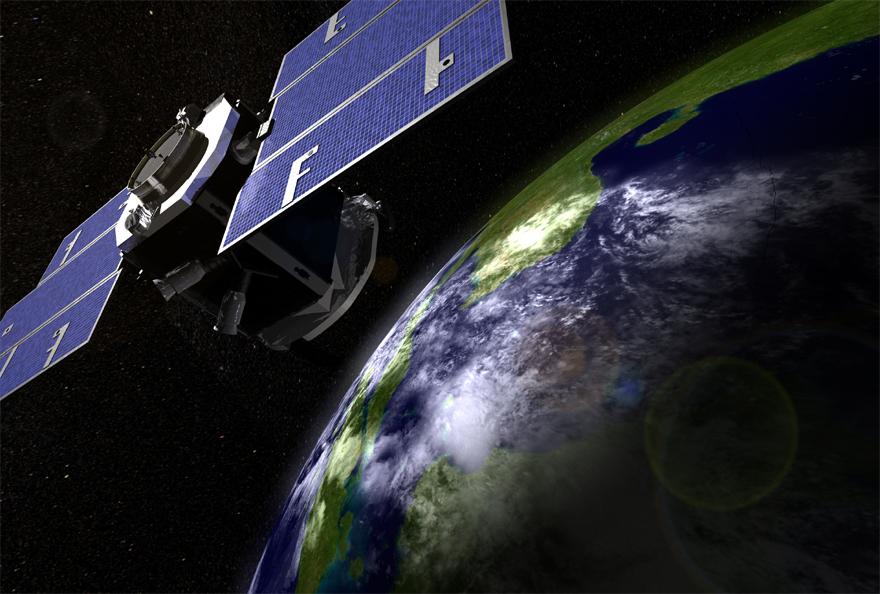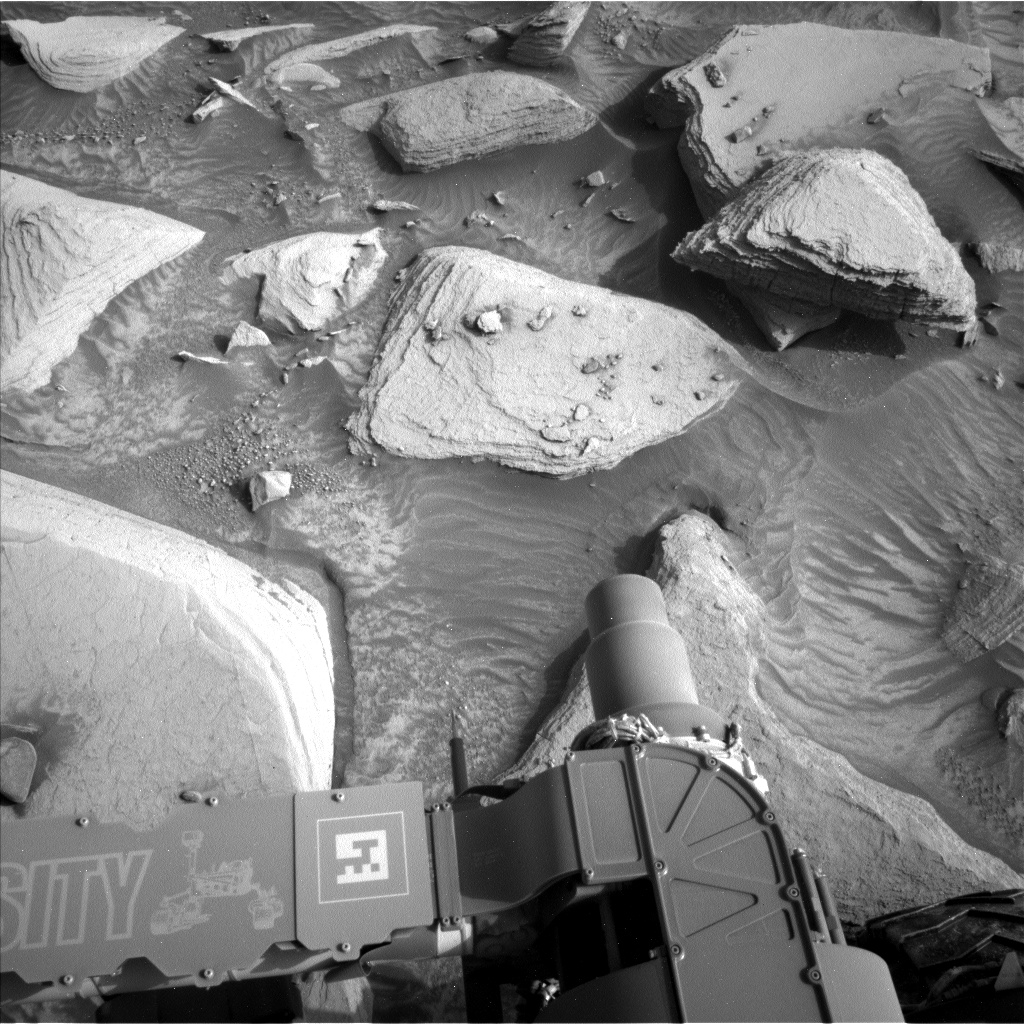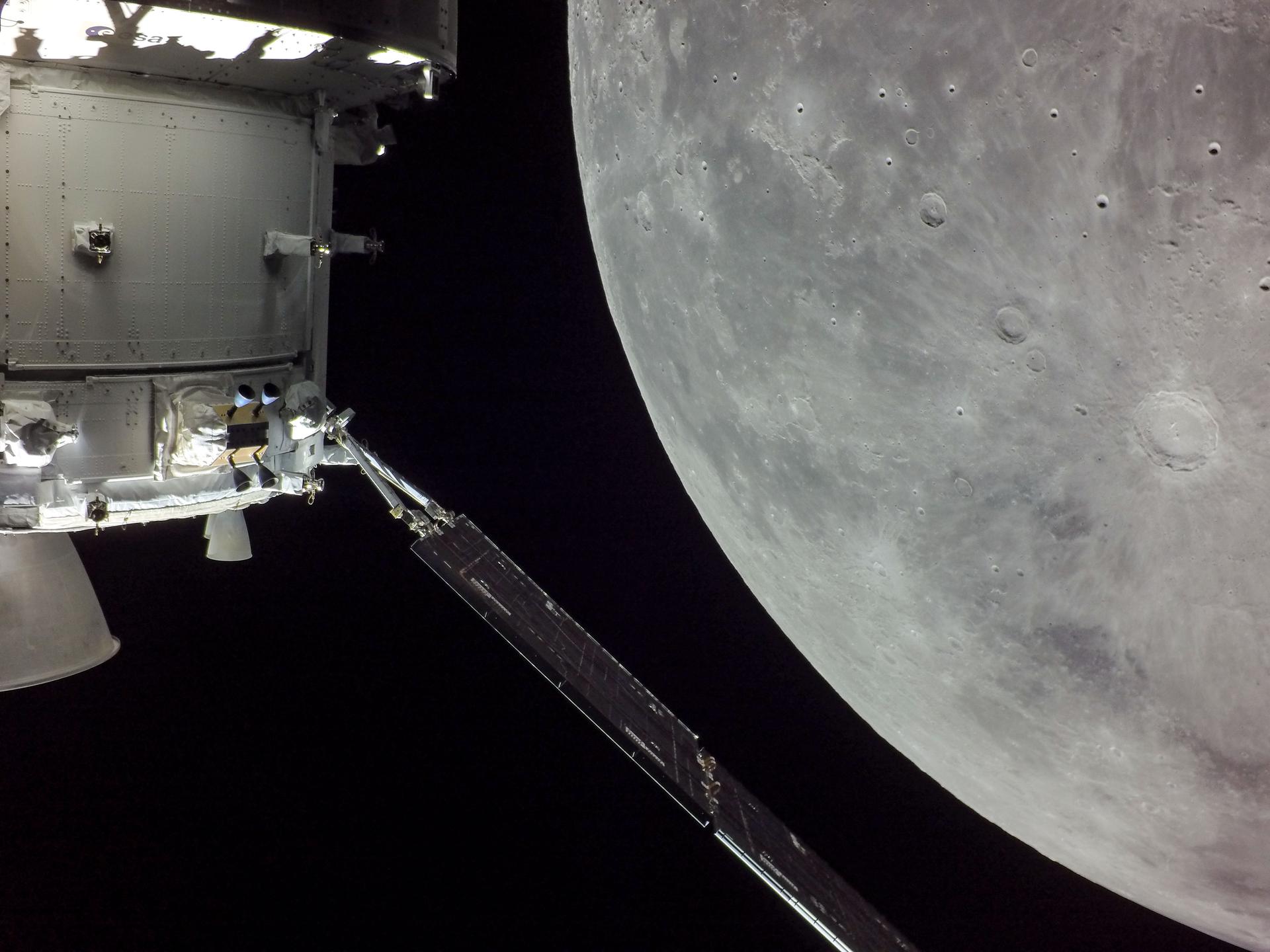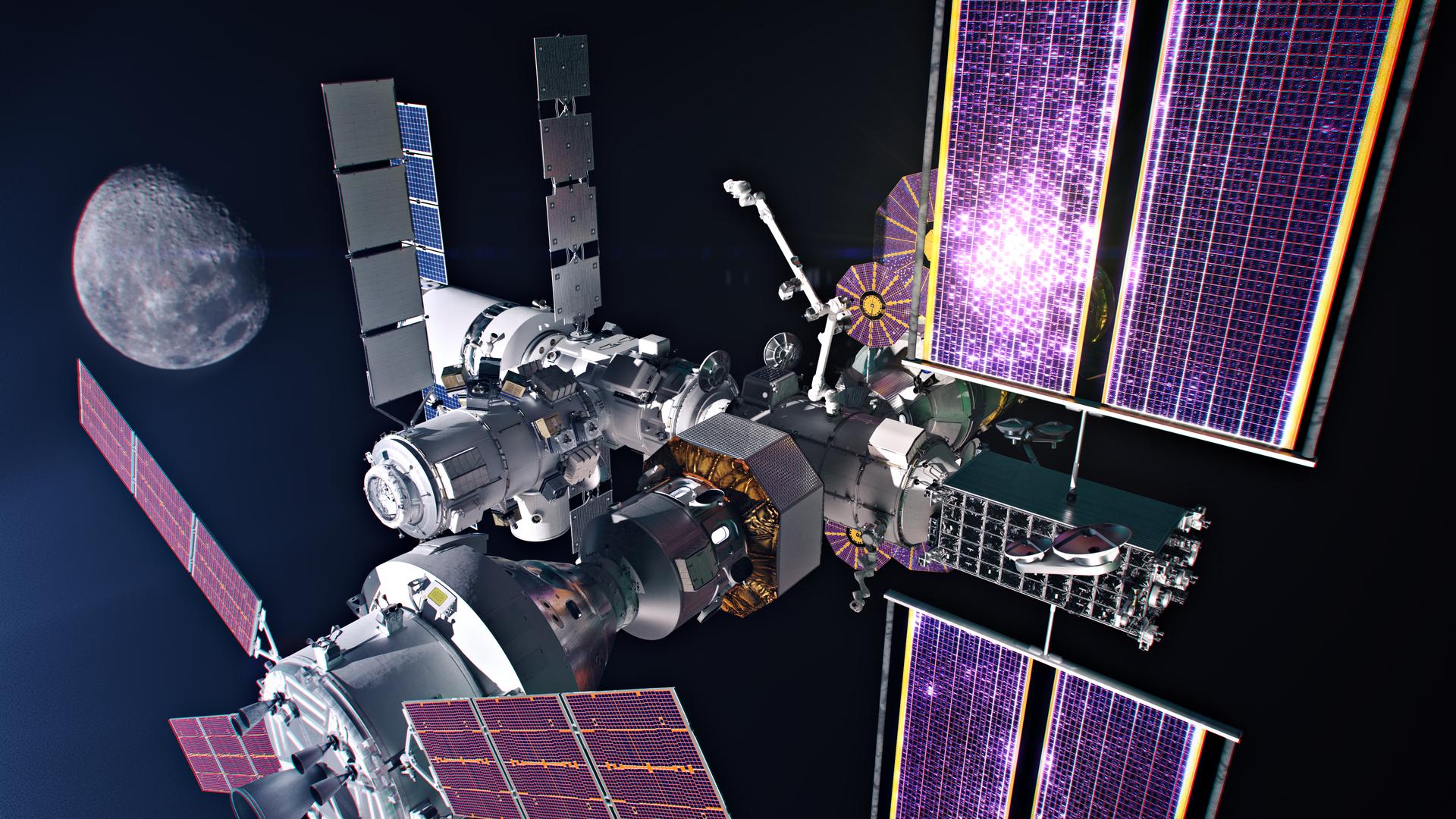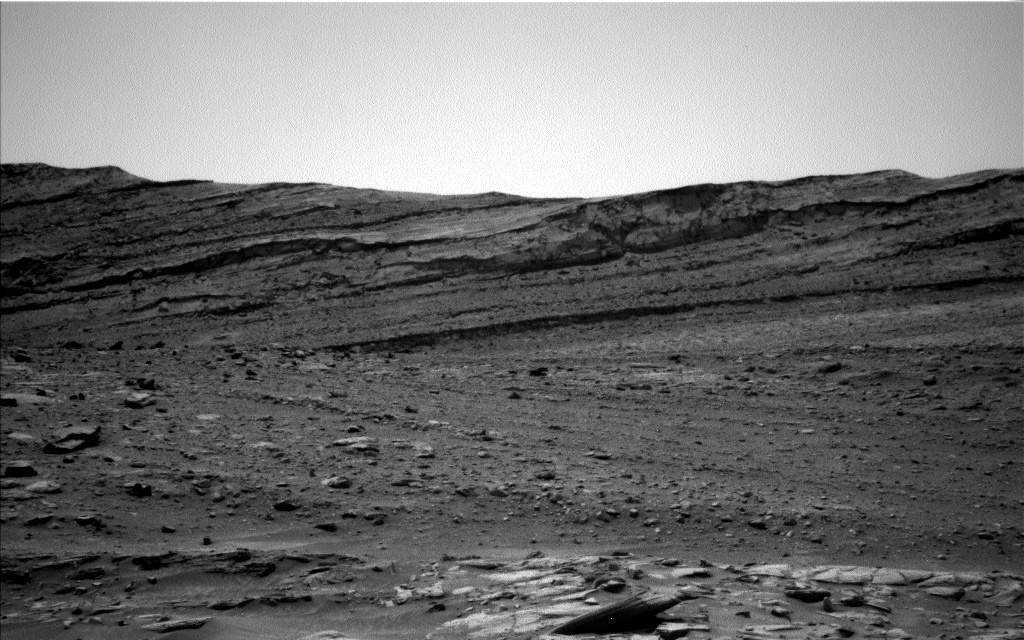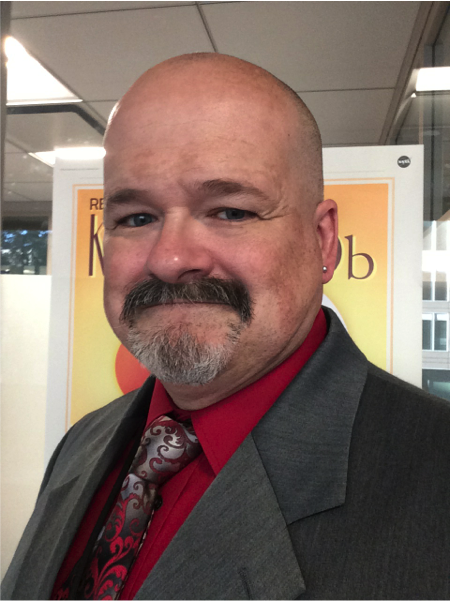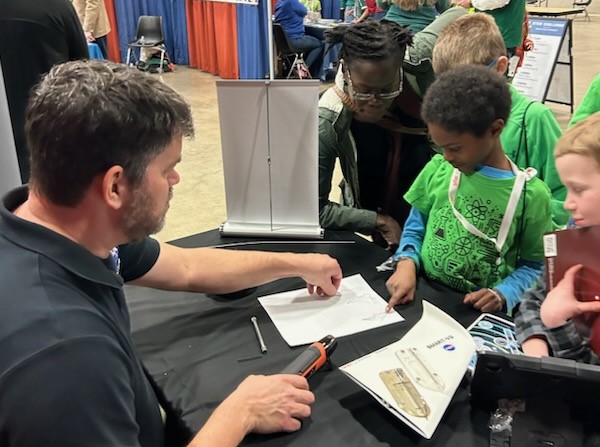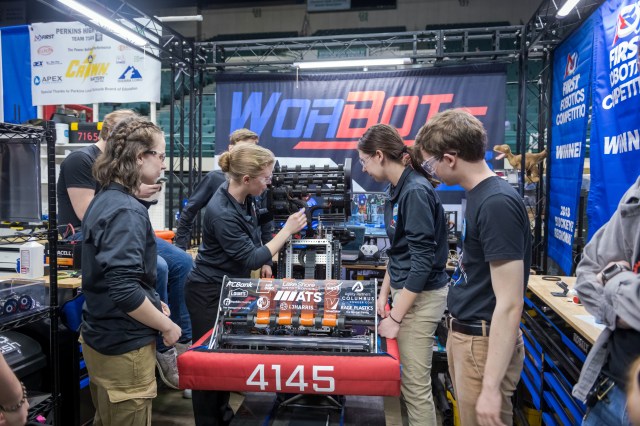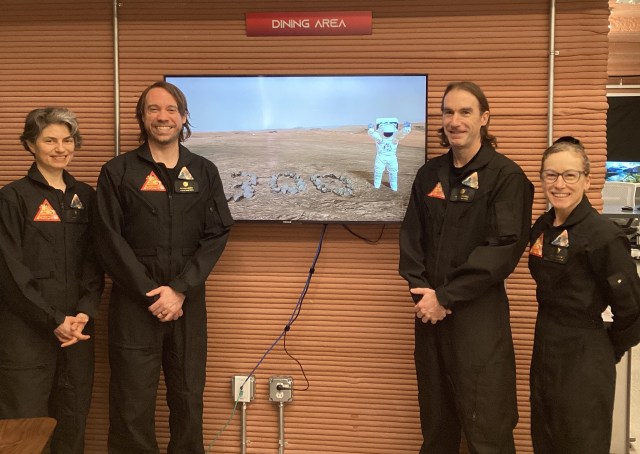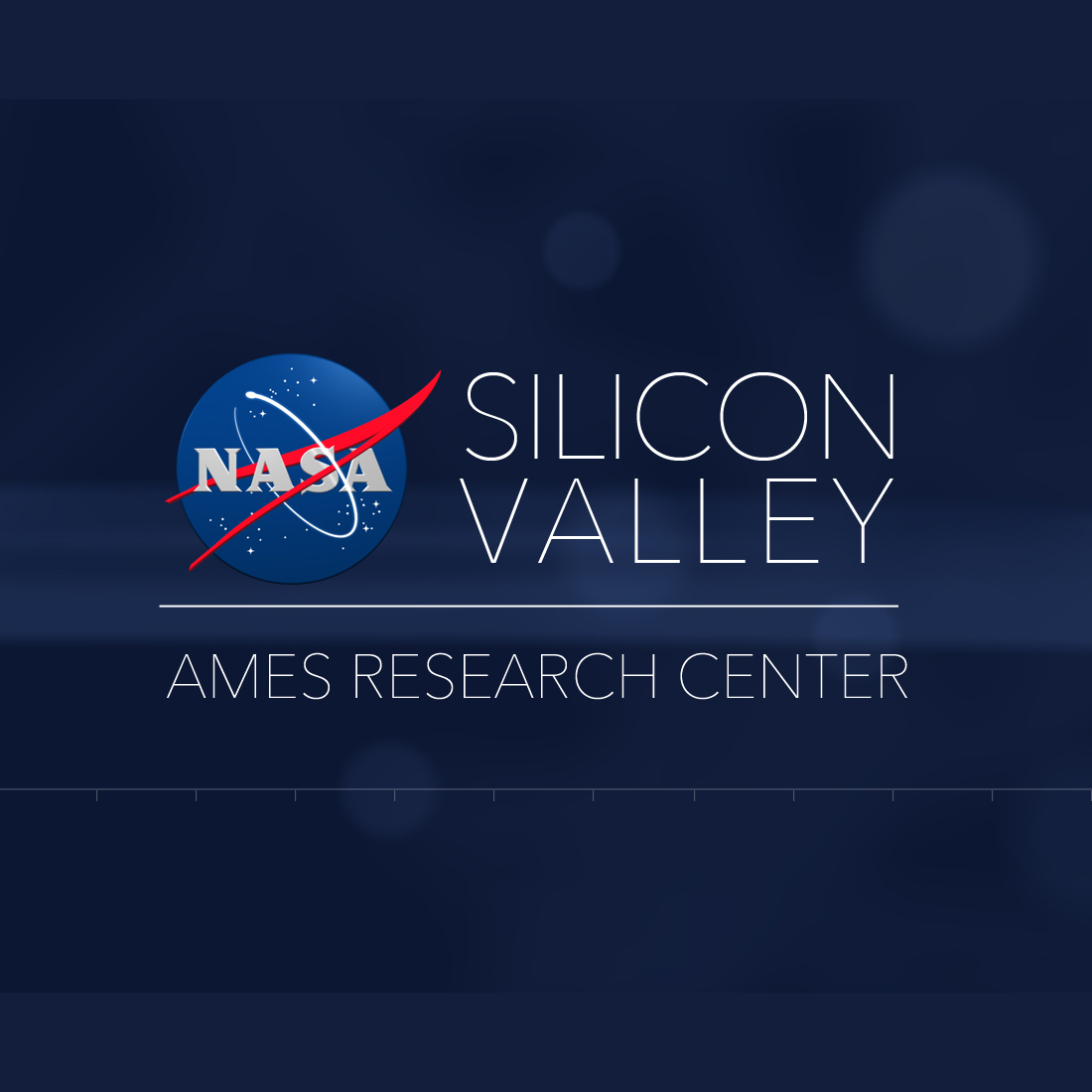A conversation with Zachary Burkland, Business Manager with the Small Business Innovation Research/Small Business Technology Transfer (SBIR/STTR) office. For more information on NASA SBIR/STTR, visit www.sbir.nasa.gov.
Transcript
Matthew C. Buffington (Host): You’re listening to episode 8 of NASA in Silicon Valley. This week, several small businesses and startups are attending the NASA SBIR/STTR Subtopic Workshop right here in Silicon Valley. SBIR/STTR stands for Small Business Innovation Research/Small Business Technology Transfer. So as a special guest, we chat with Zachary Burkland. He’s a part of the SBIR/STTR office and is helping to organize and pull this NASA event together. The workshop will provide advanced technology firms a new opportunity to identify potential areas of collaboration with prime contractors and NASA technology managers. We discuss this and more, so let’s jump right into the conversation.
[Music]
Host:We always like to start off with a basic intro, just trying to figure out what brought you to Silicon Valley and what brought you to NASA in general? How did you get started over here?
Zachary Burkland: Yeah, absolutely. I was a business student, slated to graduate in 2008, which was a bad situation to be in. You don’t want to be a business student…
Host:Looking for a job in 2008 was probably a little harder for people.
Zachary Burkland: Absolutely. The recruiting office was making it… Usually there’s a whole bunch of jobs, but there’s no jobs.
Host:You’re thinking, “Maybe I’ll go to grad school.”
Zachary Burkland: Yeah, that’s exactly what I did. I had undergraduate scholarships and I talked with the dean of the business school. I delayed graduation. I went through and I did their 3-2 MBA program, and in that year, year and a half, I was able to sort out some internships at NASA and get out here and it was probably the coolest government job I could find. You know, there were jobs, and I was so lucky that it was an awesome job.
Host:So were you already in California?
Zachary Burkland: I was in Colorado.
Host:Was it a Pathways program or was it some other special kind of… ?
Zachary Burkland: It was a different program. I think the program’s gone now but it was like a SKEP or a STEP…
Host: Or it got absorbed into… sounds familiar.
Zachary Burkland: Yeah so I was out here interning, and then one of my mentors when I was an intern, Chuck Duff, was Deputy Director of Operations and he was a big procurement guy for years and he was like, “Hey consider procurement; you’ve got a passion for the space side and you’ve got a business background – that’s a great way to bring those two skill sets together.” And I was just over the moon because I never thought I’d get to work for NASA but they need all sorts of people. They need business background people, finance people…
Host:So often, everybody thinks that if they’re not an engineer or a researcher or some sort of scientist… but no, we need all kinds of fields.
Zachary Burkland: Yeah, for every astronaut there’s a whole group of people that have nothing to do with that sort of thing.
Host:Somebody’s got to buy things, somebody’s got to cut the paychecks, somebody’s got to write press releases. It’s a whole… it takes a village.
Zachary Burkland: Yeah, so I jumped at the opportunity, and it was the best thing I ever did. I got out here and started in procurement buying little small things. You work your way up and by the end, I was buying satellites and space station payloads and that was a really incredible experience. In January, I got the opportunity to move to the program management office for the Small Business Innovation Research Office, the Small Business Innovation Research Program for NASA. The program management office is located at Ames.
Host:So it’s centrally based at Ames, but it’s for the center… basically for all of NASA.
Zachary Burkland: For the entire agency, right. We’ve got our level one at headquarters – they’re the main interface to STMD (Space Tech Mission Directorate) leadership. We end up interfacing with all the other centers as the level two office to execute the program. So we’re at the program level with overall strategy, how to get this money out to small businesses, and basically investing in long-term technologies that are like TRL – technology readiness levels – 1, 2, and 3, five to ten years out. Congress has said that any agency with specific R&D dollars over a hundred million dollars shall put aside three percent of it to go towards small businesses for this seed fund investment sort of thing.
Host:So basically your office is looking at: of everything that NASA is doing, of all the stuff that you’re buying or working on… these big projects… how can we focus this with small businesses?
Zachary Burkland: Yeah, small businesses and specifically really long-shot, higher-risk stuff that we don’t have a source for, currently.
Host: Like smaller missions or a small sat kind of thing?
Zachary Burkland: It’s not even an entire mission. We’re talking about maybe a piece of a technology, like a piece of an in-space propulsion thruster or something that we don’t have; is there some technology that could work on it? Or augmented reality, or autonomy.
Host:So we don’t necessarily have to make it in-house, we can look at some small businesses or private sector people.
Zachary Burkland: Yes, and the small businesses that engage in the STTR program actually get special rights, so we can go directly to that small business because they’ve taken the risk with us to invest their time and try to develop this into a source for us. So once they do, we can go directly to them for that service or for that piece of hardware, directly.
Host:How does that whole process work? Especially being here in Silicon Valley, it’s very fortuitous because you have all these small startups in a big innovation kind of mindset. So does somebody just have a startup business and they just go online and figure this out, or do they come and chat with you guys? How does this whole process work?
Zachary Burkland: It used to be the first thing you said, and we’re trying to implement the second thing you said. So it used to be that we just put a solicitation online.
Host:Yeah, but who knows to look for those kind of things…
Zachary Burkland: Right, the people who are in that circle probably knew to look. The people who were like tripping around on the NASA site and happened to find it probably heard about it. Maybe they were on the SBA website, or found out about STTR some other way. But they had to respond to that solicitation to one of the hundred and two or whatever technical subtopics.
Host: And a solicitation is basically, “We’re looking for a widget that does this. Can anybody do this?”
Zachary Burkland: Yeah, and in our case we’re looking for a widget in any of these hundred-plus categories that solves some problem that we haven’t been able to solve so far. So we had the benefit of having some turnover and some people with some new ways of thinking, so we pitched a new communication strategy to start with these workshops…
Host:So instead of just putting it up online and hoping that people see it, to actually try to broaden that reach.
Zachary Burkland: Right, this workshop is laying the foundation for like the 2018 solicitation. We’re going to have this workshop – if it’s a hit, and it seems like it has been – we’ve gotten a lot of people registered. I glanced at some numbers this morning, we have like 355 people in-person and a whole lot more virtual registrants, so we’ve got like 998 people between in-person and virtual that are going to be attending this thing.
Host: So basically, here’s a workshop. You’re setting up a bunch of booths, and inviting a whole lot of people to come on over and chat.
Zachary Burkland: Yeah, we’re going to have 15 different technical presentations go on over the course of the two days, and then after the technical presentation is going to be breakout sessions where there’s going to be conversations – talking about the technology and talking about NASA’s overall vision and goals and missions, and put some context around it. It’s not a formal Q&A, but it’s a way to get the small businesses to interact with these technology leaders from all around NASA. We’re flying in people from almost every center, maybe every single center.
Host:A wide range of projects, initiatives, different things…
Zachary Burkland: Out of those 102 subtopics, we’re taking a small section of those because we’ve only got two days – we can’t talk about every single one.
Host:You got to prioritize…
Zachary Burkland: But I’m really excited because this is a whole new generation of communication that’s going to go on between the program…
Host:This is literally the first time you guys have done this.
Zachary Burkland: First-ever workshop. We’re planning a couple more. We would like to have another workshop before the 2018 solicitation comes out and before we’ve actually come up with the final subtopics.
Host:People may be confused on what the 2018 solicitation is. You’re saying that for fiscal year 2018, you’re going to ask for a whole bunch of these pitches, I guess.
Zachary Burkland: Yes, and the 2017 solicitation is about to come out but we realize that our folks on the technical side are going to need some time to take this input. We’re working on thinking critically about the needs that NASA has and the technology that’s going to enable future missions. I think having an interaction with industry is critical to understanding what sort of capabilities are out there, what sort of things are appropriate… Are we pushing too hard? Are we being too ambitious with these long-shot technology things? Or are we not being ambitious enough?
Host:Having that give and take, talking to people, trying to get an idea…
Zachary Burkland: Yeah, and without the conversation it’s hard to know what you don’t know. So we’re really optimistic that this is going to be valuable for everybody on the technical side and in the small business community, and the reception that we’ve got so far from small businesses has been really positive.
Host: Does it tend to be a lot of people in this area, or is it from all over the US, people flying in to check this out?
Zachary Burkland: It seems to be all over the country. We did a survey at first just to see, should we even open up registration at all. I had people in the room that were like, “You’re going to get three people, nobody’s going to show.”
Host: You never really know.
Zachary Burkland: We’ve maxed it out pretty much, and I think the number one state in that survey and that registration indication of interest was California, which makes sense – you’re going to get the local small businesses that work on this stuff.
Host:Absolutely, especially considering here in the Bay Area – there’s tons of startups and tons of companies.
Zachary Burkland: Yeah, that was one of the big reasons we wanted to kick it off out here. The second highest response was from Florida, which is maybe not surprising – you’ve got Kennedy out there and a lot of contractors that are involved. So we’re looking at some of the next highest states for response to that. We’ll probably throw out another survey, see who actually shows up for the second workshop that we have leading up to the 2018 solicitation.
Host: The end result of this – the idea is you hold these workshops so you get a bigger pool of people who start throwing in their ideas of, “Hey, NASA this is how we can provide this widget or thing that you’re looking for,” and then basically they create it, they make it, send it to us, and we put it in a rocket.
Zachary Burkland: Yeah, exactly, and you’re supporting small businesses, you’re getting them involved in a program they may not have known about. Fifty percent of the companies that have registered for our event have not won an STTR or SBIR in the past. So we’re getting new companies to participate and that’s a great outreach outcome for us.
Host:Are you guys looking at doing this just once a year, or setting it up as a regularized, quarterly thing?
Zachary Burkland: This is our prototype event, so we’re going to see how it goes, we’re going to see the reception, we’re going to take some data on people replying and saying this is really useful, this is what could be better, and we’re going to ask, “Hey, should we do this every year?” And if the response is “yes” then we’re going to be very excited to do that.
Host:What else does your job include? What’s the next step for you?
Zachary Burkland: The next step for me – I’m fairly new to supporting the program and this has been a really incredible transition going from the operational side to the program side, and helping around a large program on the business side has been really interesting. Looking at all the policies… I have a little bit of a history of looking at process improvement and improving business processes. I did a little bit of that in procurement.
Host:And for a lot of people, that may seem like a lot of bureaucratic speak, but we were chatting earlier about how you had a procurement process that people had to literally fill out forms, and so stepping back and looking at it like, “Well let’s make this paperless”, which seems like a no-brainer, but when you have a huge agency trying to bring everybody on the same page for that, it can be like herding cats.
Zachary Burkland: Yeah, and as I got into it there’s actually quite a lot of really compelling arguments to stay with paper – you can hack into paper, without physical proximity to it. But we were able to come up with a really good business case to make the numbers add up. We were able to work with the people who are actually putting the files together and show that we can reduce the amount of time that they spend on that particular activity.
Host:People working smarter, not harder… enable them to do more with their time.
Zachary Burkland: Yeah, so we needed some seed funding. We worked and applied to the NASA IT Labs Competition, we teamed up with Langley Research Center who had a procurement division who was really all about going paperless, and we came up with a great solution that we were able to apply.
Host: This is an internal NASA agency competition, where internally they’re like, “All right here here’s a pot of money – what are your best ideas out there?”
Zachary Burkland: Everybody who’s got a great IT opportunity, or a thing that they want to pitch, can submit it to the IT Labs Competition and get your team together, and see if you can get some seed funding and throw out a prototype. It could change the way the agency does business.
Host:Some of the next things you’re looking at with the small business group is figuring out how to do stuff more efficiently. Instead of the same old way of just putting something up online and hoping that people get it, here’s something else we can do.
Zachary Burkland: I really want to look at our processes and see what we can do better, and see how we can engage with the community better and revamping our communications plan with regards to how we get feedback about our solicitations was an area that I thought we could really benefit from.
Host:Excellent. You’d mentioned before how you’re really into NASA, really into space, and it’s also interesting when you come from a business background, or never even thinking that NASA was necessarily an option. What are the kind of things that you see around you that gets you excited?
Zachary Burkland: I love sitting around and talking with people that have a bead on the future, and what they think things are going to be like in 10, 15, 20 years, how are we going to get to Mars, and just talking with all these people that are in the know. I think that was one of the biggest things that made me want to work for NASA – I was just so curious about what’s it like in there. I just want to know about all this stuff. So talking to people that are actually working on it and just musing about that sort of thing has really been a pleasure.
Host: And then having your own little role. You mention people are to make this rocket, experiment, anything, you name it, and then having them work through the small business process to figure it out.
Zachary Burkland: In procurement you run into these situations… In business school, you hear the Challenger and Columbia cases, and those are standard case studies and it’s like, “These are the things that went wrong and at the time of…”
Host:It shows the high risks of not following safety and just proves how serious this all is.
Zachary Burkland: You have to avoid groupthink, you have to be on the lookout for all sorts of things. You don’t want anybody sitting down and shutting up. I got the chance to shadow Charlie Bolden a few years back, and I was so glad to hear him say that. Those are his words: “I don’t want anybody sitting down and shutting up.” When you’re in the back room and the top guy says he wants to hear it if you see an issue. So it is like, NASA has learned.
Host:They hired you for your judgment, they hired you for your intelligence.
Zachary Burkland: Yeah, “We want to do this thing right, so speak up.” There was a time when I was in procurement and I had the heat shield contract here at NASA Ames and I had the NASA supercomputing support services contract. So I had the supercomputer and the heat shields, and it was either STS-131 or 134 – the last few shuttle launches. There was a foam strike on the space shuttle, and we got back a 3D scan of the underbody of the space shuttle. There were two tenths of an inch of heat shield left between one of the tiles and underbody. You can look up the scans online; NASA’s got them on their website. The heat shield team was working with the supercomputing team, and they ran the shuttle through reentry thousands of times to make sure it was safe. I was like, “Wow, all these business cases are coming full circle. I have got to be on the lookout to make sure if there’s anybody dissenting who’s not being heard; are communication paths from the people that are looking at the data getting to the people who are making the decision?” So I was on the lookout, but they were so far ahead of me; they were soliciting anybody that had any doubts, and they were so sure that it was going to work. And obviously came back and landed, but that’s how it goes when everything is working right and you’ve learned from your mistakes.
Host:For SBIR, after this workshop, what are the big things you guys are working on?
Zachary Burkland: We’ve obviously got our SBIR solicitation that’s coming out, and we’ve always got an STTR solicitation coming out.
Host:What is the difference between SBIR and STTR?
Zachary Burkland: Small Business Innovation Research is just a small business proposing on its own, and STTR is Small Business Technology Transfer – that’s when they’re required to work with an institution, like a university or something, and partner up to apply to those. We want to encourage interaction between those sorts of organizations and small businesses to increase their resources, increase the pool of knowledge…
Host:So not only small businesses, it’s also matter of: here’s how we can transfer NASA technology to people. We’ve learned this stuff as the federal government on behalf of the American people, so now we share it with others so that they can use it as well.
Zachary Burkland: Totally. We really want to increase participation in those as much as possible, and they’re great programs. They’re really beneficial to the small businesses if they can get into them.
Host:So for small businesses, folks interested in tech transfer who were not able to attend the workshop this week – what can they do, how can they get involved, how can they find more info?
Zachary Burkland: I would encourage you to go to sbir.nasa.gov. Take a look at our solicitations, and see if there’s anything that you can propose to. Keep an eye out and see when the next ones come out, and also keep an eye out for our next workshop. If all things go well, we’ll have another one, and it’ll probably be in a different part of the country. We realize that it’s tough for small businesses to travel so we want to move it around. Consider attending, consider applying, and consider getting involved with the U.S. space program. We need small businesses and they’re absolutely critical to us achieving our missions.
Host:Excellent. Thanks for coming on over, it was great chatting with you.
Zachary Burkland: My pleasure Matt, thank you, thanks for having me.


